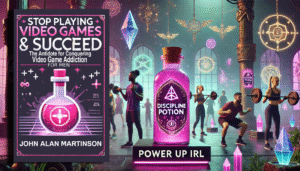
What are the capitalist dipshits at Mattel trying to inspire girls to do? Smash the patriarchy?

It was opening day for Barbie at the theaters in Mexico and my wife and daughter were overjoyed with excitement. The cinema was in a shopping mall, and all the girls had shown up in pretty outfits to enjoy the movie, take photos with an ornate Barbie display in the background, and to enjoy spending time with their friends before and after the movie. It was a girl’s day out but there were plenty of boyfriends and husbands to accompany the girls on what seemed like a perfect date idea.
I knew that Barbie was as meaningful to the girls as Lego, G. I. Joe and Teenage Mutant Ninja Turtles were for me. I remember my sister playing with her Barbies, and I also remember trying to be a good brother and play with her and her dolls one time while she was bored, and without any sisters or female friends to play with. We spent a few hours cutting cloth and trying to sew together different outfits for her Barbie dolls. I can definitely see the fun in designing women’s clothes.
For girls, Barbie can be the inspiration to enter fashion design, and for many others she is a symbol of how beautiful a woman can be if she eats healthy food, exercises, and avoids destructive habits. Barbie, of course, is beautiful. Barbie encourages healthy habits by embodying ideals of beauty through physical fitness and stylish presentation, promoting the idea of self-care.

Barbie has also been celebrated for her ability to inspire creativity and self-expression among young girls. Since her debut, she has embodied the idea that girls can be anything they aspire to—whether that’s a doctor, nurse, architect, fashion icon, or game designer. For many, she’s not just a toy but a role model, showing how dreams can be as diverse as the roles Barbie plays in her various iterations.
Barbie, however, is a capitalist venture, so business strategists want the toy to remain relevant across generations by adapting to societal norms. I applaud that today Barbie reflects racial diversity by showcasing different skin tones, because girls around the world have a wide variety of phenotypes. The toy, however, is increasingly becoming just another weaponized instrument to spread leftist ideologies to unsuspecting youths.
It’s not enough that Barbie inspires girls to aim for whatever career choice pleases them. The marketing executives seem to be tracking how successful Barbie has been in getting females into male-dominated occupations. Why?
Why does the Mattel corporation find it important that there are more women in certain occupations? Why is there such an obvious agenda to blur the gender lines in the workforce?
Why are marketing executives at Mattel interested in promoting feminism?

Feminism is ugliness. It won’t be long before Barbie isn’t beautiful anymore—and to my family, she’s already an unattractive feminist bitch, all thanks to the detestable feminism of the Barbie movie.
The 2023 Barbie movie, directed by Greta Gerwig, was predictably lauded by feminists for tackling themes of self-identity and “the complexities of gender,” while many others, like myself, have found it nothing more than misandrist spittle awash in feminist tropes. The depiction of the Ken dolls as bumbling and dependent on Barbie reduced male characters to comic relief, as is typical of western entertainment—the man of the house is always the moron (Married With Children, The Simpsons, Family Guy, Everybody Loves Raymond, Malcolm in the Middle, Home Improvement, ad nauseam).
My issue with the movie is that it devolves into a gender war narrative, and a satirical take on patriarchy that felt more like a needlessly confrontational polemic than thoughtful commentary.
Barbie’s legacy was used as a platform to push feminist nonsense. Instead of celebrating the positive impact Barbie has had on inspiring generations of girls, the film hijacks the character to deliver an exaggerated critique of men and masculinity. What could have been a lighthearted adventure about self-discovery or female empowerment through discipline and upright conduct, became a lecture on gender dynamics, packaged with scenes of male ineptitude and female superiority.
This wasn’t an empowering story—it was pandering to a shallow, outdated feminist narrative that reduces gender relations to feminist stereotypes found in the trite comedy of stale network sitcoms. The Barbie I knew inspired dreams. This movie? It was just feminist propaganda selling a self-destructive ideology.

The Barbie movie made me cry, and I’m not ashamed to admit it. The movie didn’t exactly have me sobbing in tears, but long after watching it, I was surprised to find tears forming in my eyes as I thought about how terrible the movie was. I probed my mind to determine why I could get so emotional over Barbie (2023). I would likely also shed a tear if someone ripped the Mona Lisa to shreds just to protest their social or political agenda.
I was deeply saddened to find that what I thought was a sacred feminine icon, was being used to create the next wave of ugly self-destructive feminist bitches.
Yes, it made my eyes teary to think about the divisiveness, and greed, and disrespect, and the insult of the whole thing.
We need toy companies with a better vision for the future. Imagine a brand dedicated to inspiring girls to become Proverbs 31 women—women of virtue, strength, and wisdom who honor their families and embody excellence. If Barbie (2023) is the template for the future of our daughters, that’s not a future I want for mine—one where she grows up in conflict with her husband or without the respect needed to maintain a strong marriage. A future where the ideal of partnership is undermined isn’t what I envision for my daughter or any young girl.


